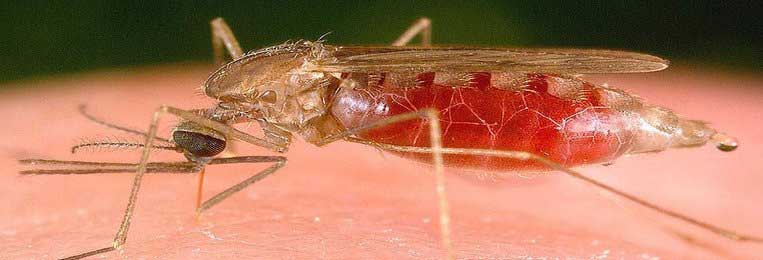Springfield – According to the Illinois Department of Public Health (IDPH) the first human case of West Nile virus in Illinois was reported. The St. Clair County Health Department stated that an adolescent female presented the virus this month.
“The recent hot, dry weather in Illinois has increased the number of mosquitoes carrying West Nile virus. This first human case is a little later in the year than we typically see in Illinois, but it’s a good reminder of the importance for people to continue taking precautions like wearing insect repellent and staying indoors between dusk and dawn,” said Nirav D. Shah from the IDPH.

Surveillance for West Nile virus in Illinois includes: laboratory tests on mosquito batches, dead crows, blue jays, robins and other perching birds, and testing of sick horses and humans with West Nile virus related symptoms. The Health Department recommends that people who see a sick or dying perching bird should contact health authorities, which will determine if the bird will be picked up for testing.
West Nile virus is transmitted through the bite of a mosquito that got the virus by feeding from an infected bird. Symptoms include fever, nausea, headache and muscle aches, which may last a few days or a few weeks. However, four out of five people infected with West Nile virus will not show any symptoms. People older than 50 and immunodeficient people are at higher risk for severe illness from West Nile virus. Severe conditions may result in meningitis or encephalitis, or even death.
In order to prevent further infections, the IDPH recommends the following tips:
Reduce exposure: minimize being outdoors when mosquitoes are most active, especially between dusk and dawn. Make sure doors and windows have tight-fitting screens and try to keep doors and windows shut. Finally, eliminate all stagnant water where mosquitoes can breed.
Repel: while outdoors, wear shoes and socks, long pants and a long-sleeved shirt. Apply insect repellent that contains DEET, picaridin, oil of lemon eucalyptus or IR 3535.
Report: report dead birds to your local health department.
According to the American Red Cross there are Five Common Myths about West Nile Virus. You can read about them here
Source: Illinois Department of Public Health
